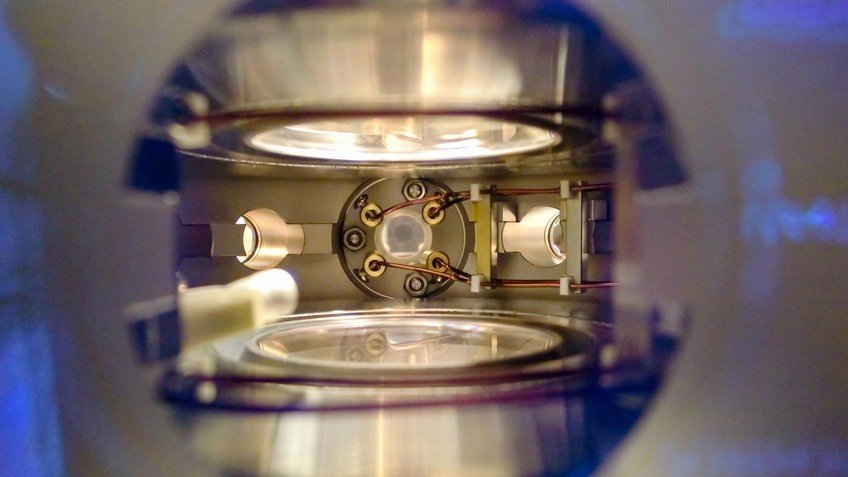Researchers at the Max Planck Institute of Quantum Optics have developed a novel cooling technique for molecular gases. It makes it possible to cool polar molecules down to a few nanokelvin. The trick used by the team in Garching to overcome this hurdle is based on a rotating microwave field. It helps to stabilise the collisions between the molecules during cooling by means of an energetic shield. In this way, the Max Planck researchers succeeded in cooling a gas of sodium-potassium molecules to 21 billionths of a degree above absolute zero. In doing so, they set a new low-temperature record. In the future, the new technique will allow to create and explore many forms of quantum matter that have not been experimentally accessible until now.
